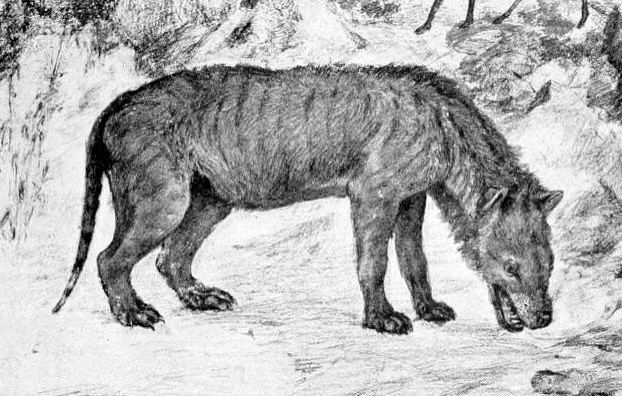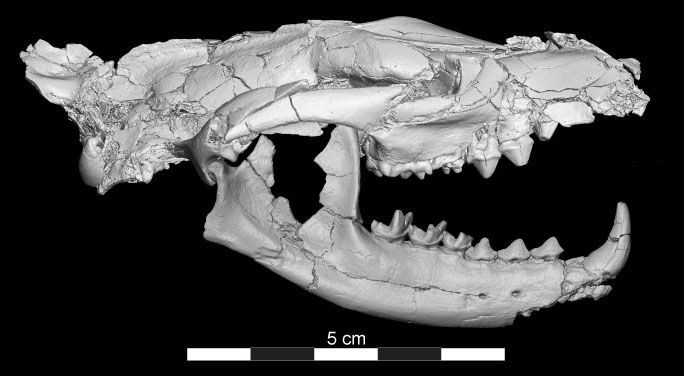Fossils From Africa Are New Extinct Species Distantly Related To Cats And Dogs

The extinction of the dinosaurs left an opening at the top of the food chain, and these ancient Egyptian carnivores helped fill it.
Bones from 34 million years ago found in what is now Egypt reveal a new species in the extinct mammal family called hyaenodonts, which were all over the globe and came in different shapes and sizes. The new species, Masrasector nananubis, was about the size of a skunk and moved quickly, according to a report from the Public Library of Science. Researchers had found several specimens of the new animal, including skulls and limbs, to make their analysis.

“Hyaenodonts were the the top predators in Africa after the extinction of the dinosaurs,” co-author Matthew Borths of Ohio University said in the report. Finding such full fossils of the new species means scientists can learn more about how the group evolved since Afro-Arabian hyaenodonts are the oldest of the family. “We can explore what it ate, how it moved, and consider why these carnivorous mammals died off as the relatives of dogs, cats and hyenas moved into Africa.”
Read: Make Eye Contact With An Ancient Egyptian Mummy
Although Borths mentioned dogs, cats and hyenas, the hyaenodonts are only thinly related to these other carnivores, sort of like a distant cousin — PLOS explains that they share common ancestors, but hyaenodonts were on a branch of the family tree that diverged before those more modern animals began to evolve.
The study in PLOS One describing the new species says a skull from the samples is “the oldest known from an Afro-Arabian hyaenodont.”
And the new species name, nananubis, is a tribute to the ancient Egyptian god Anubis, which had the head of a jackal and was involved with that civilization’s idea of the afterlife and mummification. Borths said in an interview that because Anubis is so related to preservation, of which fossilization could be considered related, “I’ve always seen Anubis as a patron god of paleontology.”
See also:
© Copyright IBTimes 2025. All rights reserved.





















